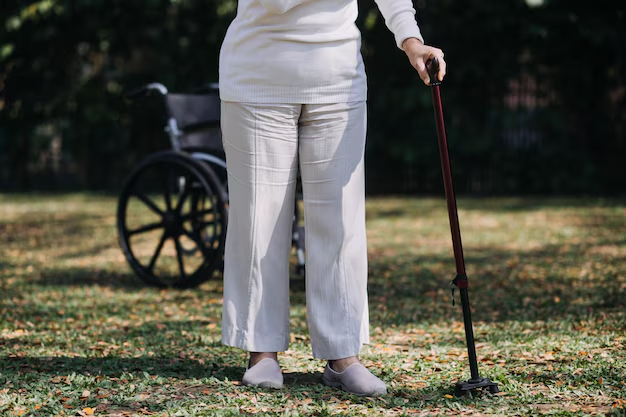Can Parkinson's Disease Be Cured? Understanding the Current Landscape
Parkinson's Disease (PD) is a condition that touches millions of lives around the world, fostering both concern and curiosity about its implications. For those affected, this leads to a crucial question: Can Parkinson's Disease be cured? The answer, however, is not a simple one. While current medical science offers a myriad of treatments that significantly improve quality of life, a definitive cure remains elusive. This article delves into understanding Parkinson's Disease, explores current treatment options, and examines ongoing research in search of a breakthrough.
Understanding Parkinson's Disease
What Is Parkinson's Disease?
Parkinson's Disease is a chronic neurodegenerative disorder primarily affecting movement control. The disease is characterized by the progressive loss of dopamine-producing neurons in a brain region called the substantia nigra. Dopamine is critical for coordinating smooth and balanced muscle movements. As dopamine levels deplete, symptoms begin to manifest, often starting subtly and progressing over time.
Symptoms and Diagnosis
The symptoms of Parkinson's Disease vary but commonly include:
- Tremors: Often beginning in a limb, usually a hand or fingers.
- Bradykinesia: Slowness of movement leading to difficulties with simple tasks.
- Rigidity: Muscle stiffness often affecting posture and movement.
- Postural Instability: Issues with balance and coordination.
Diagnosis typically involves a neurological examination and medical history review. While there's no single test for Parkinson's, imaging tests like MRI or DAT scans can support the diagnosis by ruling out other conditions.
Current Treatment Options
Medications
The mainstay of PD management revolves around medications that aim to manage symptoms by increasing dopamine levels or mimicking its effects. Key medications include:
- Levodopa: The most effective PD drug, converted into dopamine in the brain.
- Dopamine Agonists: Mimic dopamine’s effects without being converted.
- MAO-B Inhibitors: These reduce the breakdown of brain dopamine.
Surgical Interventions
For some individuals, surgical options like Deep Brain Stimulation (DBS) can be a beacon of hope. DBS involves implanting electrodes in specific brain areas to regulate abnormal impulses. This method is often used when medication alone doesn't suffice and has shown promising results in reducing symptoms.
Lifestyle Adjustments
Incorporating regular exercise, a balanced diet rich in fruits and vegetables, and therapies such as physical, occupational, and speech therapy can augment medical treatments, providing holistic support to individuals with Parkinson’s.
The Search for a Cure
Ongoing Research and Clinical Trials
While PD remains incurable at present, intense research efforts are underway to find a solution. Scientists are exploring various avenues, including:
- Gene Therapy: Attempts to correct defective genes responsible for dopamine loss.
- Stem Cell Therapy: Investigating the potential of stem cells to regenerate dopamine-producing neurons.
- Neuroprotective Strategies: Developing treatments aimed at halting or slowing neuron damage.
Clinical trials are pivotal in this pursuit. They provide insights into new treatment possibilities and test the efficacy and safety of emerging therapies.
Breakthrough Discoveries on the Horizon
Recent advancements in understanding the genetic underpinnings of PD are propelling research forward. For instance, the identification of specific genetic mutations linked to Parkinson's is opening doors to targeted therapies that address these anomalies at the source.
The Importance of Hope and Support
Building a Supportive Community
Living with Parkinson's can be challenging, making support systems invaluable. Engaging with support groups, participating in community activities, and fostering open communication with healthcare providers create robust networks that cater to emotional and psychological well-being.
Stay Informed and Engaged
Staying informed about new research, breakthrough treatments, and innovative therapies is empowering. Online resources, webinars, and medical literature allow individuals to remain at the forefront of understanding and managing Parkinson’s Disease.
Advocating for Awareness and Research
Engagement in awareness campaigns and advocacy for research funding is vital. By participating in these efforts, everyone can contribute to advancing science and the move towards potential cures.
With each passing day, the quest for curing Parkinson’s Disease gains momentum. While a definitive cure might not be available today, the strides in medical research, improvement in treatment methodologies, and increased awareness foster optimism. Science is continually evolving, and with it comes the promise of breakthroughs that could one day make Parkinson's Disease a condition of the past.
📝 Key Takeaways:
- Parkinson’s Disease currently cannot be cured, but its symptoms can be effectively managed.
- Medications and lifestyle changes play a pivotal role in improving quality of life.
- Ongoing research is focused on gene therapy, stem cell therapy, and neuroprotective strategies.
- Building a supportive community and staying informed are crucial for those affected.
- Participation in advocacy and awareness efforts offers hope and promotes research advancements.
The journey with Parkinson's Disease is distinct for each person. Continuing to explore options and fostering a supportive environment can lead to better outcomes and maintain a hopeful outlook for the future.

Related Articles
- Are There Environmental Causes Of Parkinsons
- Can Alcohol Cause Parkinson's
- Can Concussions Cause Parkinson's
- Can Females Get Parkinson Disease
- Can Head Trauma Cause Parkinson's
- Can Parkinson Disease Cause Dizziness
- Can Parkinson's Affect Eyesight
- Can Parkinson's Affect Memory
- Can Parkinson's Affect Speech
- Can Parkinson's Affect Vision
